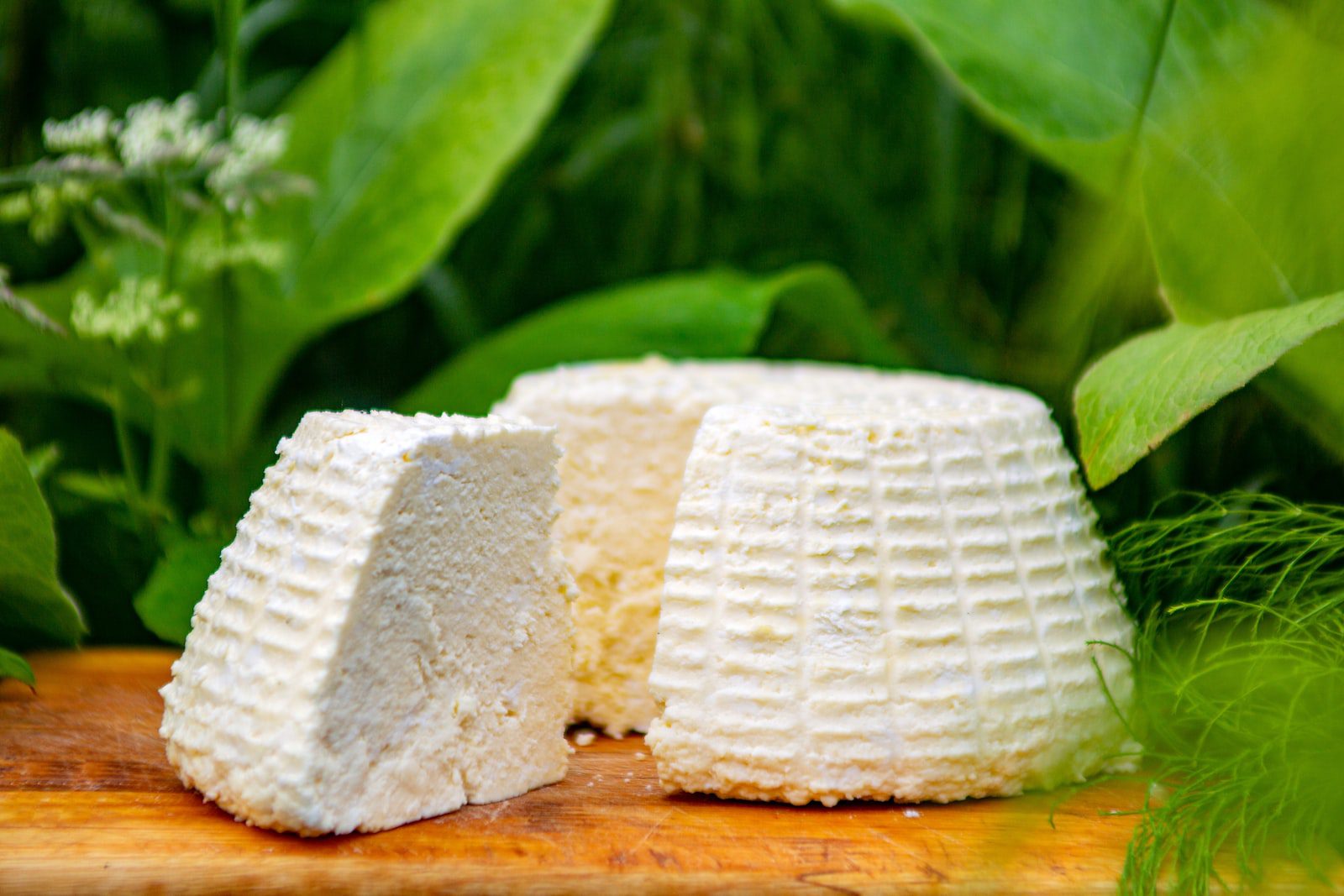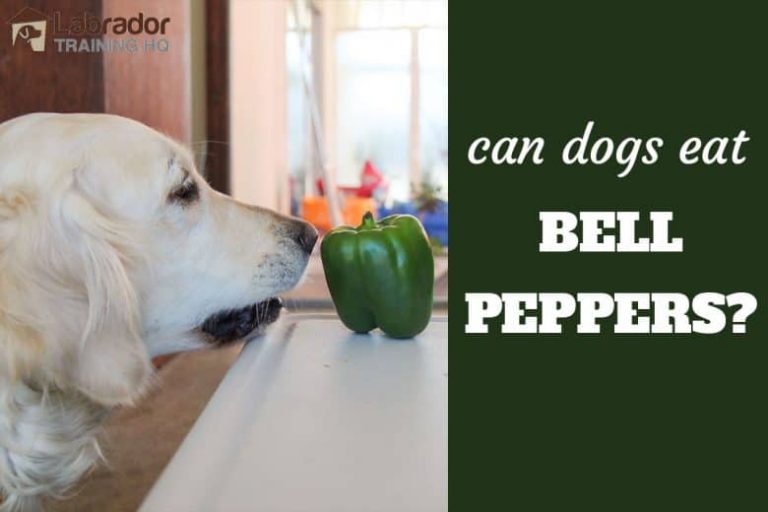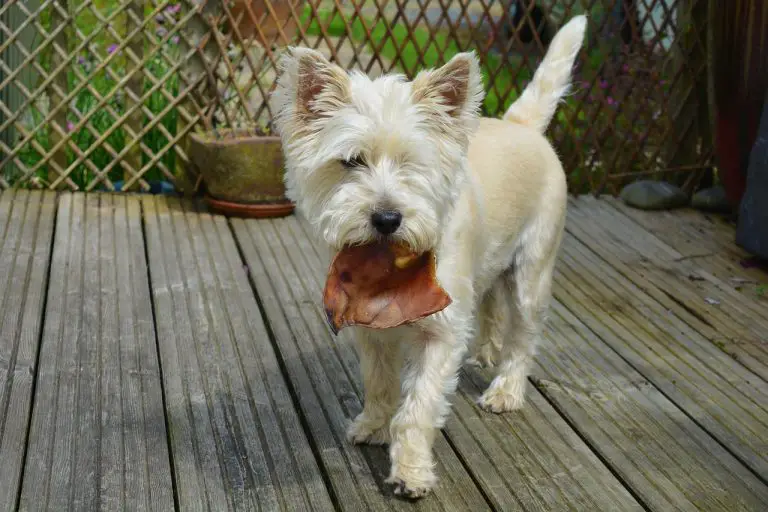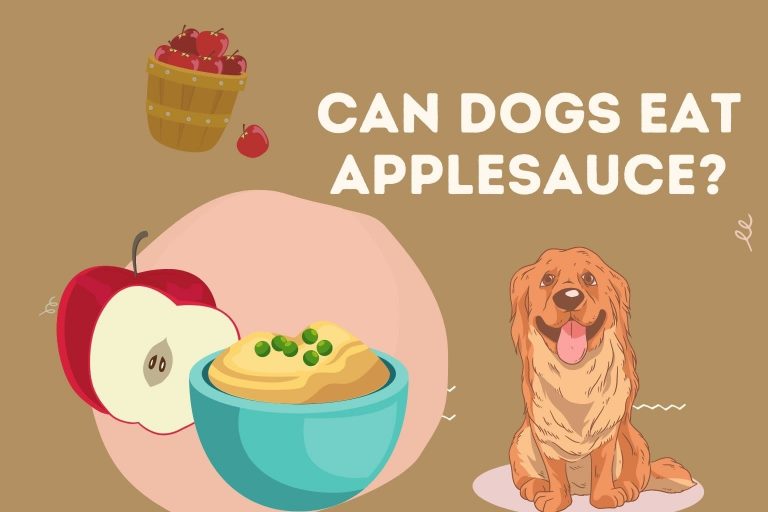I am a professional baker who runs an online bakery. Cakes, pies, brownies, sandwiches, and pizzas are just a handful of the baked items I specialize in.
Not a day goes by when I’m not found in my kitchen, baking birthday and wedding cakes, ordered by my online clients.
For me, baking is an art, and my kitchen is a studio. It is my creative space, where I get to exercise my freedom. Interestingly, I’m never alone, for I always have by my side, Bailey, my dog.
Bailey is a white American Labrador I adopted from a pet shelter a couple of years ago. He is an adorable and playful pooch, with an undying love for cheese. The mere sight of me sprinkling cheese over a pizza, or icing a cheesecake, sends Bailey into a state of frenzy.
Often, I would toss a small chunk of cheese to Bailey, which he would devour in less than a minute, and soon it became a daily ritual. Until recently, I realized that overeating cheese; Bailey would end up with an upset stomach. Bailey’s upset stomach got me thinking, can dogs eat cream cheese?
I discussed the issue with a vet, to which he replied that yes, dogs can eat cheese but only in moderation. It isn’t such a bad food option for dogs. However, being a dairy product, too much cheese isn’t suitable for dogs that are lactose intolerant.

Is Cream Cheese Safe for Dogs?
It is a proven fact that the aroma of cheese tempts dogs. It is perfectly alright if you toss a little bit of cheese to your dog, every once a while, but you have to do it safely.
Although cheese is a safe treat for your dog, there are a few things that you need to take care of. Cheese possesses high-fat content, and feeding too much fat to your dog can result in obesity. As a result, your dog gets slow, lazy, and less playful.
Furthermore, too much fat can cause more significant problems, and one such issue is pancreatitis. Pancreatitis is a potentially dangerous illness for a dog. Moreover, a majority of cheese types contain ingredients like onion and garlic, which aren’t healthy for your canine.
If you are tempted to share a slice of cheese with your fuzzy pet, make sure it is low fat. Low-fat cheese types, such as mozzarella and cottage cheese aren’t that bad after all. Compared to other kinds of cheese, mozzarella, and cottage cheese have low fat and low sodium, which reduces the chances of obesity in your dogs.
Cottage cheese has lesser lactose, which eliminates the possibility of intestinal issues in dogs. The cheese made out of lactose is far better than the ones made from cow milk, for they are low in lactose.
To answer the question, “is cream cheese safe for dogs?” .Yes cream cheese is safe for dogs and they can have cream cheese, but not all dogs.
Watch this video of dogs eating cream cheese.
Why Is Cream Cheese Good or Bad for Dogs?
If you are still wondering can dogs eat cream cheese, then let’s take a look at the pros and cons of eating cheese for your dog.
Cream cheese being a dairy product is an excellent source of dietary calcium. All dogs need calcium for healthy bones and teeth, which help them in leading a healthy life. Cheese is also a source of fat, which allows your dog to absorb soluble vitamins such as vitamin A.
It is a fact that cheese provides your dog with energy, but too much of it can result in obesity. Feeding cheese to your dog is both advantageous and detrimental to your dog’s health, which is why it must be done in moderation.
One of the worst things about cheese for your dog is the lactose content. Too much lactose can have an allergic reaction upon your dog if it isn’t lactose tolerant. However, it is difficult to determine whether or not your dog is lactose tolerant. Lactose is a form of sugar, which occurs in milk naturally.
In younger mammals, including dogs and humans, an enzyme called lactase is produced. It helps them in digesting the lactose present in cheese. On the flip side, older mammals do not possess lactase. They find their food and are not dependent on milk from their mothers.
Unlike most dogs, some dogs do not produce lactase, which is needed for lactose digestion. Furthermore, some dogs are allergic to the proteins found in a cow’s milk and might have an allergic reaction to cheese as well.
To sum it all up, the fermentation process removes a lot of lactose from cheese. As a result, cheese is a safer food option for a dog compared to raw milk. Therefore, it is alright to feed a small amount of cheese to your dog, yet cheese is no substitute for a meal.
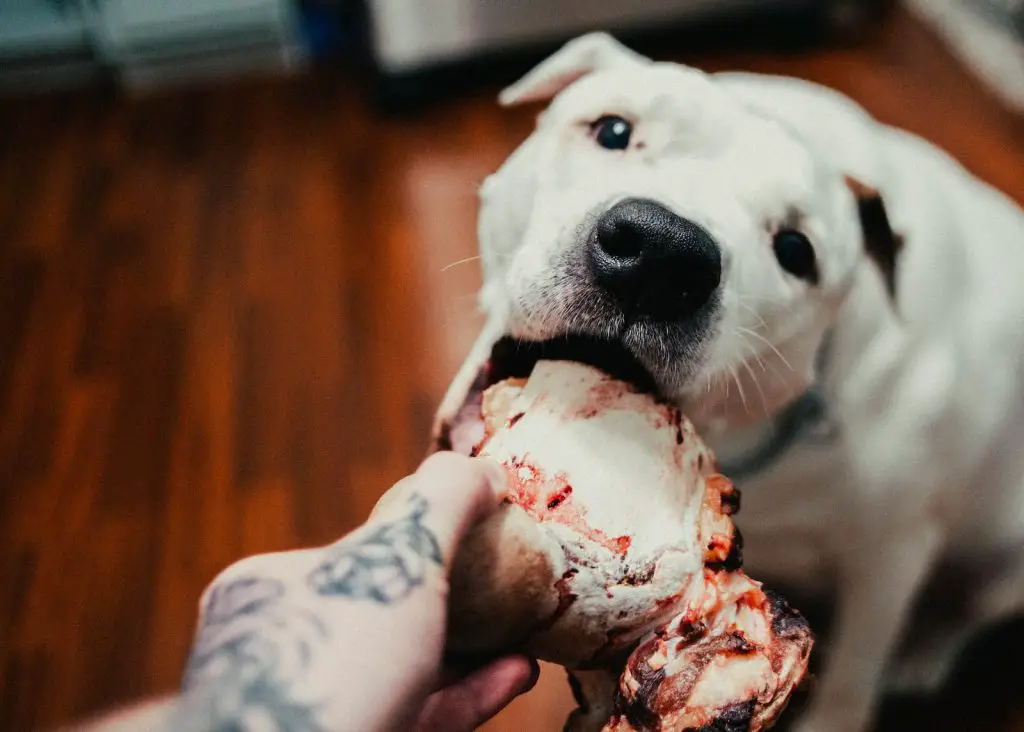
What Ingredients in Cream Cheese Are Healthy for Dogs
To better understand can dogs eat cream cheese, we must look at the ingredients in cream cheese.
Interestingly, feeding cheese to your dog isn’t completely healthy or harmful. However, certain ingredients in cheese make it suitable or unsuitable for your dogs.
Let’s break it down.
One of the healthiest elements found in cheese is calcium. The right combination of calcium and magnesium is necessary for a healthy balance of bone mineral. On the flip side, the deficiency of calcium can weaken your dog’s bones, and cause a health condition known as dysplasia. This ailment can make your dog, more prone to broken bones and fractures.
Protein helps your dog’s body function properly. Furthermore, the amino acids found in protein, contribute to your dog’s muscle development, healthier skin, and tissue repair. Also, proteins help your dog develop a more robust immune system. Proteins are also crucial for the repair and maintenance of cells and tissues in dogs. Lastly, proteins contribute to the creation of antibodies, enzymes, and hormones.
Vitamin A is another essential vitamin for dogs, found in cheese. It helps them stay healthy, and makes their nerves, muscles, and skin function perfectly. If a dog suffers from vitamin A deficiency, it will have an unhealthy coat and skin and might even suffer from night blindness.
Also, vitamin A deficiency is dogs, causes the muscles to deteriorate, thus making your dog feel weak and slow. Lastly, vitamin A is vital for pregnant bitches and their puppies, for it helps them grow.
What Ingredients in Cream Cheese Are Harmful for Dogs
Let’s discover some of the harmful ingredients for dogs, which are found in cheese.
As discussed earlier, lactose is a form of sugar found in milk and dairy products, and cream cheese is no exception. Most adult dogs are lactose intolerant, which is why they have a hard time digesting cheese and other dairy products.
Unlike younger puppies, fully grown dogs do not possess lactase- the enzyme the digests lactose. For lactose intolerant dogs, too much can cheese can result in the following health conditions.
- Bloating and stomach pain
- Severe gastrointestinal issues
- Diarrhea
- Constipation
Here are some other symptoms of lactose intolerance in dogs.
- Pain in muscles and joints
- Fatigue
- Lethargy
- Body pain
- Problems while urinating
We have discussed earlier that fermentation eliminates the lactose in cheese to a greater extent, but for elderly dogs, it is best to feed the cheese in moderation.
Apart from being a source of lactose, cheese contains a significant amount of fat. Fat causes obesity in dogs and makes them a lot of weight. As a result, your dog becomes slow and less playful than usual. Fats result in lethargy and fatigue and also have adverse effects on your dog’s metabolism. If left untreated, your dog can develop pancreatitis.
Some kinds of cheese have in them garlic and onions. Garlic is a toxic ingredient, which mustn’t be fed to your dog at any time. Both garlic and onion belong to the alliums family of plants.
These plants contain Thiosulphate, which tends to reduce the oxygen found in red blood cells. This is why even a small amount of garlic and onion can prove detrimental to your dog’s health.
The symptoms tend to vary depending upon your dog’s current health condition, and the amount of cheese it has consumed. If a dog consumes a small amount of these ingredients, it will only have slight stomach disorder.
However, consuming a large amount of cheese that contains these ingredients, your dog might be prone to catching hemolytic anemia. As a result, your dog might have difficulty in breathing and severe dehydration and lethargy.
How Much Cream Cheese Can My Dog Eat Regularly?
In our quest to answer can dogs eat cream cheese, we have to address how often they can get away with eating it.
Even though cream cheese is a rich source of calcium, vitamin A, and proteins, too much cheese can be damaging for your dog’s health. Therefore, as a dog owner, you must refrain from feeding your pooch unnecessarily high amounts of cream cheese regularly. Too much cheese can leave your dog with nasty diarrhea, and several digestive issues.
Not only does cream cheese give your dog diarrhea and digestive problems, it is a rich source of fat. The fats found in cream cheese cause obesity in dogs, because of the calories fats contain. Increased calories can lead to pancreatitis, which puts your dog under a considerable amount of pain.
Furthermore, cream cheese undergoes severe processing before it turns into light runny cream. If you love your pet, you should never allow it to consume high amounts of processed food regularly. Instead, if you want to treat your dog, make sure you treat it with something natural, like honey or peanut butter.
If your dog craves cheese, give it only a small amount of cheese. To keep your dog from developing a taste for cream cheese, try spreading it over a slice of bread.

What Are Alternatives to Cream Cheese?
If you feel your dog is allergic to lactose, it is better to keep it from having cream cheese. Instead, you can present them with some of the homemade dog treats mentioned below.
This simple DIY dog treat is made from only three ingredients and is easy to prepare if you are just a beginner. All you need to have is some whole wheat flour, a couple of mashed potatoes and half cup peanut butter. Just mix them and bake the mixture for not more than 20 minutes.
This natural dog treat is much loved by dogs, especially during the summer season. Also, they are super easy to make. All you need is a can of pumpkin, some bacon, and blueberries. Mix them, mount them over sticks, and then freeze them. It’s a nice and easy way of letting your pooch beat the summer heat.
If your dog is a lover of fruits, this treat is undoubtedly for them, and there is no cooking involved. To make this treat, you need some yogurt, raspberries, and watermelon. Mix the three ingredients, pour them in fruit-shaped stencils and allow them to freeze.
If you have never made pumpkin dog treats before, this is an excellent way to start. These dog treats are simple to prepare and incredibly delectable for dogs. All you need is an egg, some pumpkin, cinnamon, and flour. Mix the ingredients and make a fine dough. Break small pieces of the dough, and bake them for 40 minutes. To keep things funky, you can give them any shape you want
This lovely, soft dog treat is just as good for puppies as it is for grown-up dogs. The best thing about this dog treat is the aroma. The smell of freshly baked banana dog puppy treats will make your pup go completely nuts. All you need is a banana, one tsp cinnamon, unsalted peanut butter, and an egg. Mix them into a fine dough, and bake it for not more than 10 minutes.
Just like us humans, dogs too catch diabetes. But, this does not mean that your good boy should be deprived of its fair share of treats. These dog treats are easy to prepare, and they take not more than 10 minutes to cook. To make this delicious dog treat, you need a half-pound beef liver, wheat flour, and two eggs. Mix them thoroughly and bake the mixture for 10 minutes.
Those above are just a handful of the several creative dogs treat ideas; you can come up with. If you feel like feeding some cheese to your pooch, make sure either it is mozzarella or cottage cheese.
If you want to protect your dog from lactose, it is better to feed them dairy products made out of goat milk, instead of cow’s milk. Goat milk is low in lactose and is, therefore, a safe dairy option for your fuzzy canine.
Signs Your Dog Likes Cream Cheese
Here are some signs; your dog has a natural liking for cream cheese.
You find your dog circling the dining table every time you are having a pizza, burger, or a cheese sandwich.
The aroma or the sight of cream cheese make your dog drool or lick its lips.
Every time, you toss a slice of pizza or a chunk of cheese, your dog moves it around with its nose, trying to find the best part.
Signs Your Dog Dislikes Cream Cheese
Let’s take a look at some signs; your dog does not like cream cheese.
It is sporadic, but the most apparent sign of whether or not your dog doesn’t like cream cheese is that it’ll not have it at all.
If your dog is lactose intolerant, it will have an allergic reaction to cream cheese, and might even get sick.
If your dog is lactose intolerant, it will seize to enjoy all dairy products, whether its cheese, yogurt or raw milk.
My Dog Just Ate Some Cream Cheese, What Do I Do Now?
Ok, first of all, do not freak out. If you have just caught your dog eating some of that yummy cream cheese, there is absolutely nothing to worry about. If you are confident that your dog has eaten a smaller amount, nothing terrible will happen.
However, if you know that it has consumed a significant amount of cream cheese, it is better to book an appointment with your local vet.
Do not wait for its health condition to worsen before you seek an appointment. In the worst-case scenario, your dog might experience an upset tummy, but it will get better with slight medication.
Conclusion
To answer your question, “can dogs eat cream cheese?” yes dogs can eat cream cheese, but in a small amount, occasionally. Too much cream cheese can give your dog an upset stomach, and make it sick. Also, the fats in cream cheese cause obesity in dogs, which makes them slow, sluggish, and increases the chances of pancreatitis.
It is rightly said that raising a puppy is far more complicated than raising a child. To keep your dog happy and healthy, be very conscious about their diet. Only feed them organic foods, and refrain from giving them processed items. Take them for walks regularly, and never skimp on regular medical checkups.

